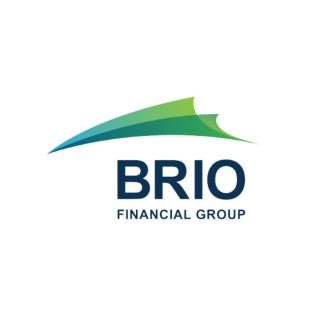
Plan For Financial Freedom - Even If You're Not Rich
by Brandon Miller on Jul 3, 2018
In honor of Independence Day, let’s focus on a freedom you probably want to achieve—your financial independence. You know, that time of your life when you have enough money to kiss your job goodbye and pursue your passions.
Sounds great. But for most of us, it also sounds like a long slog. Achieving financial freedom means you have to accumulate wealth. And the surest way to build wealth is to spend less than you make. When you live someplace as expensive as the Bay Area, it’s hard not to pay out every cent that comes in.
To get ahead financially, you have to prioritize, make sacrifices and stay disciplined. Ugh, sounds hard and like zero fun.
But it doesn’t have to be. Really. It just takes a new way of looking at the challenge ahead of you.
For example, you may tell yourself that if you make enough money, you can travel to lots of fun places. So you spend all of your time
working to accumulate what you deem to be enough money instead of focusing on where your next trip should be.
Now flip that thinking 180 degrees. You want to travel to fun places so how can you earn enough money. This opens you up to other possibilities. Do you really need a big home, cable TV or even a car when you plan to be gone so much? Or would that money be better spent on travel? Would two part-time jobs with greater flexibility be a smarter option than one job with limited vacation time? Perhaps you could work for a time, travel until your funds get low, work some more, travel again, and so on.
The point here is that letting your dreams dictate your finances and not the other way around allows you to focus on something you love. And that gives you greater motivation to act and stay on track, while making you way more creative in how you bring your dreams to life.
With that new attitude in mind, here are some suggestions that can help you be more successful:
Be specific about your goals. Vague dreams and wishes are hard to work toward. Instead of just fantasizing about being your own boss, figure out what type of business you want to open. This allows you to plan for specifics such as the work space, equipment, staff, training and other elements you’ll need to open your doors. The more precisely you can define your goals, the better you can plan for them.
Do the math. Don’t worry, there’s no advanced algebra involved, just pretty basic equations. Add up what your dreams will cost. Subtract your expenses from your income. How much do you have left over to invest in your dreams? Where can you earn more or spend less to increase your savings? You may find online financial calculators or a financial advisor to be useful here.
Develop a disciplined approach. The best-laid plans can easily get sidetracked if you rely on willpower alone. Instead of putting money aside just when you feel flush, set up a regular investment schedule and have money deducted directly from your paycheck or bank account. This is known as paying yourself first, and it’s a tried-and-true way to build wealth.
Another good tactic is to give yourself an allowance. Make it forbidden to dip into the rest of your funds for anything except true emergencies. And no, Cher’s final Final Farewell tour is not an emergency. You’ll have to revert to saving a portion of your allowance for your want-to-haves, just like you did when you were a kid. See, saving money can make you feel young again.
Again, online resources, financial advisors and even a life coach can help you track your spending, stick to your budget and keep moving toward your goals.
Accept that s^$*&#$(%@ happens. Even if you do everything right, there’s no guarantee of success. Accidents, natural disasters, job loss, divorce, a sick child—there’s no shortage of things that can derail your plans. Do your best to put safeguards in place, such as insurance and emergency savings. And then try to accept that you can’t control everything.
A life-changing event might also make you re-evaluate your dreams. If that’s the case, you can start anew with precisely defining your goals, doing the math and implementing a plan to make these new dreams happen.
You don’t have to be young or rich to benefit from a goals-based approach to saving and investing. Anyone can use this technique to build wealth that can lead to financial freedom—and the realization of their dreams. Sounds like a reason for fireworks.
The opinions expressed in this article are for general informational purposes only and are not intended to provide specific advice or recommendations for any individual or on any specific security. It is only intended to provide education about the financial industry. To determine which investments may be appropriate for you, consult your financial advisor prior to investing. Any past performance discussed during this program is no guarantee of future results. Any indices referenced for comparison are unmanaged and cannot be invested into directly. As always please remember investing involves risk and possible loss of principal capital; please seek advice from a licensed professional.
Brio Financial Group is a registered investment adviser. Advisory services are only offered to clients or prospective clients where Brio Financial Group and its representatives are properly licensed or exempt from licensure. No advice may be rendered by Brio Financial Group unless a client service agreement is in place.
